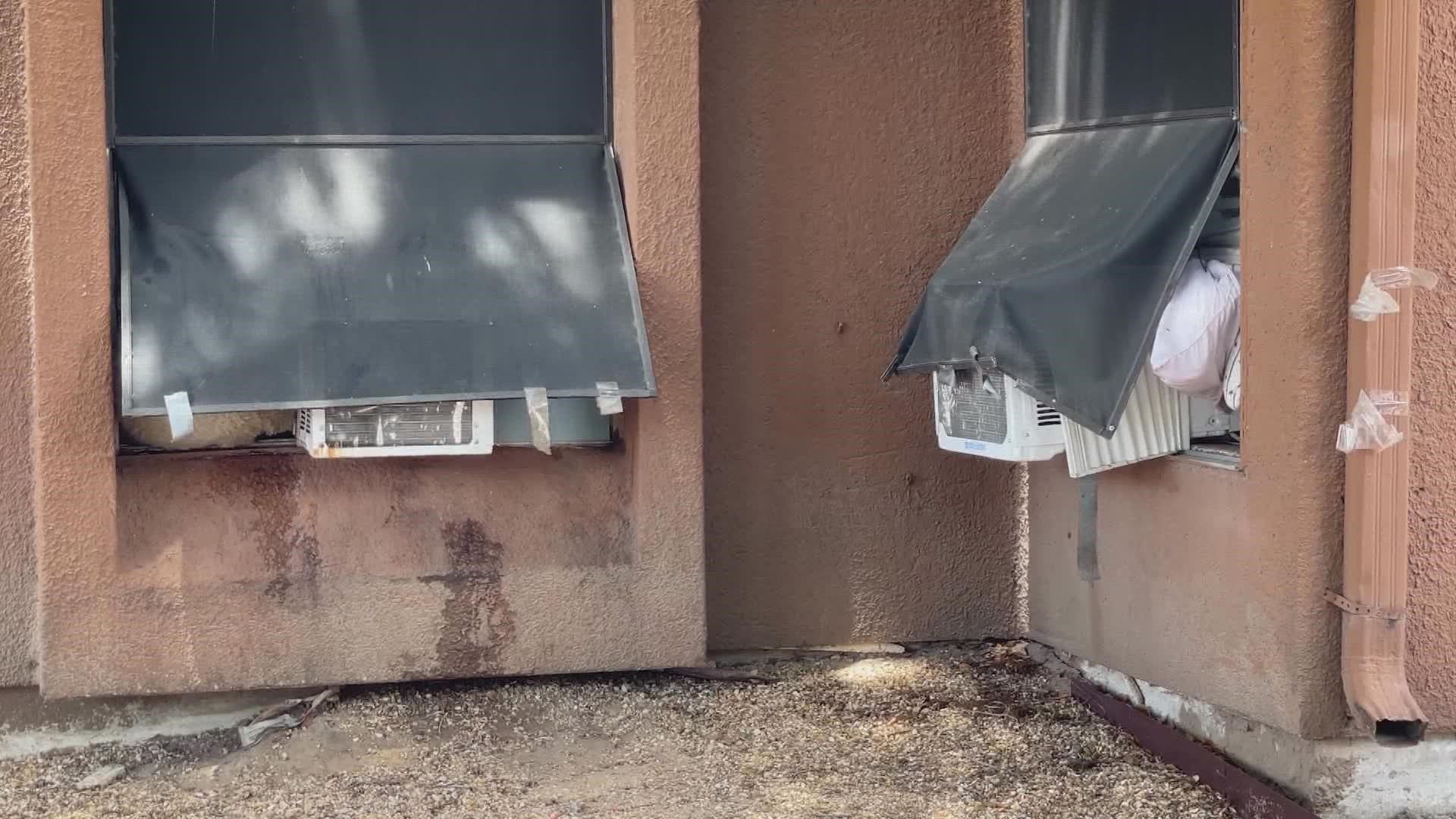DALLAS — With Texas being as hot as it is, air conditioning is a must. However, WFAA has heard from residents saying their A/C units haven't been working in their apartments.
Some viewers tell us that their units have not been working for days, weeks, or months and their thermostats have read up to 100 degrees inside.
They say they've sent requests to landlords or apartment managers, but no one's helped.
WFAA previously spoke to employees with the City of Dallas about what people can do. An assistant city manager recommended Dallas tenants dial 311 or go online to log a complaint, and the Dallas Code Office should respond in 24 hours.
They're also asking people to be patient, but productive, which is hard to do in triple-digit heat.
So what else can tenants do?
Sandy Rollins, Executive Director of the Texas Tenant's Union, broke down the answers according to Chapter 92 of the Texas Property Code.
Is there a timeline on how long landlords or apartment managers have to address a repair request before tenants can take any extra measures?
Rollins says the timeline required for landlords to repair A/C starts as soon as apartment managers get the request, or when there's at least an attempted delivery of that request.
"The law says they're supposed to respond within a reasonable period of time, which is presumed to be seven days," she said.
In Section 92.056 of Title 8, it's suggested that tenants send the notice "by certified mail, return receipt requested, by registered mail, or by another form of mail that allows tracking of delivery."
The delivery tracking can be from the U.S. Postal Service or a private delivery service. Having a copy of the tracker shows proof that the landlord got the notice.
If there's no way it can be tracked, Rollins says the tenant should send two requests and keep proof that they were received. For example, if a request was hand delivered, the tenant can ask someone in the office to sign their copy of that request.
"Sometimes, the act of sending a certified letter gets a tenant taken more seriously because they realize they're laying the groundwork to take action, perhaps, if it doesn't get fixed," Rollins said.
Whether or not those notices can be tracked, once they're delivered, the situation is now in the landlord's hands.
Rollins also pointed out laws that says landlords are responsible for fixing something that puts a tenant's physical health or safety in danger. It's mandatory as long as the tenant has notified the landlord about the issue and they're paying their rent in full.
Unless the condition (like an air conditioner) was destroyed by someone in the apartment (the tenant, a guest, etc.) or unless the tenant properly waived their rights in their lease contract (which is rare and would not apply to apartment complexes), the landlord is responsible for "repair or remedy."
So you've done all of that, but no one's come by to fix the A/C. What can you do now?
According to Rollins and Chapter 92, there are three main ways to handle this:
- End the lease and move
- Sue management for one month's rent, an additional $500, damages, court costs, attorney fees, and for rent to be lowered until the AC is fixed (Sec. 92.0563)
- Have someone outside of apartment management fix it and have that cost deducted from your next rent payment (Sec. 92.0561).
If you decide to move out of the complex, you can still sue the apartment managers.
If you go with the "repair and deduct" option, there are extra steps to this:
- After sending a repair request, send a warning that you'll hire someone else to fix the A/C and you'll subtract that cost from your next rent payment. That warning should have a "reasonable description" of what you want to fix.
- Have an official inspector (from local housing, building, health, etc.) send a written notice to your landlord that the A/C's current condition can affect an ordinary tenant's health or safety.
- Have the repair done by an official company, contractor, or repairman from your area or a nearby area. Unless the landlord agreed otherwise, the repair cannot be done by you, your immediate family, any employer/employees, or a company that you have any ownership of.
- When you make your next rent payment, you have to show a copy of the repair bill along with the payment receipt to have the cost deducted. The bill and receipt can be the same document.
If the landlord fixes the A/C or sends an affidavit for delay between the time you contacted a repairperson and the time that person starts the job, then the landlord is responsible for the repairperson's trip charge. If there's still a repair cost, you can deduct that charge from your next rent payment.
Rollins says information like this isn't common knowledge, but that's what the Texas Tenants Union is for.
"We do Tenant's Rights education," she said. "We try to give them a heads-up in advance on how to maneuver through situations like this."
The organization hosts online Tenant's Rights Workshops on the second Monday of each month.
Their next one will be on Monday, August 8 at 6:30 p.m.

